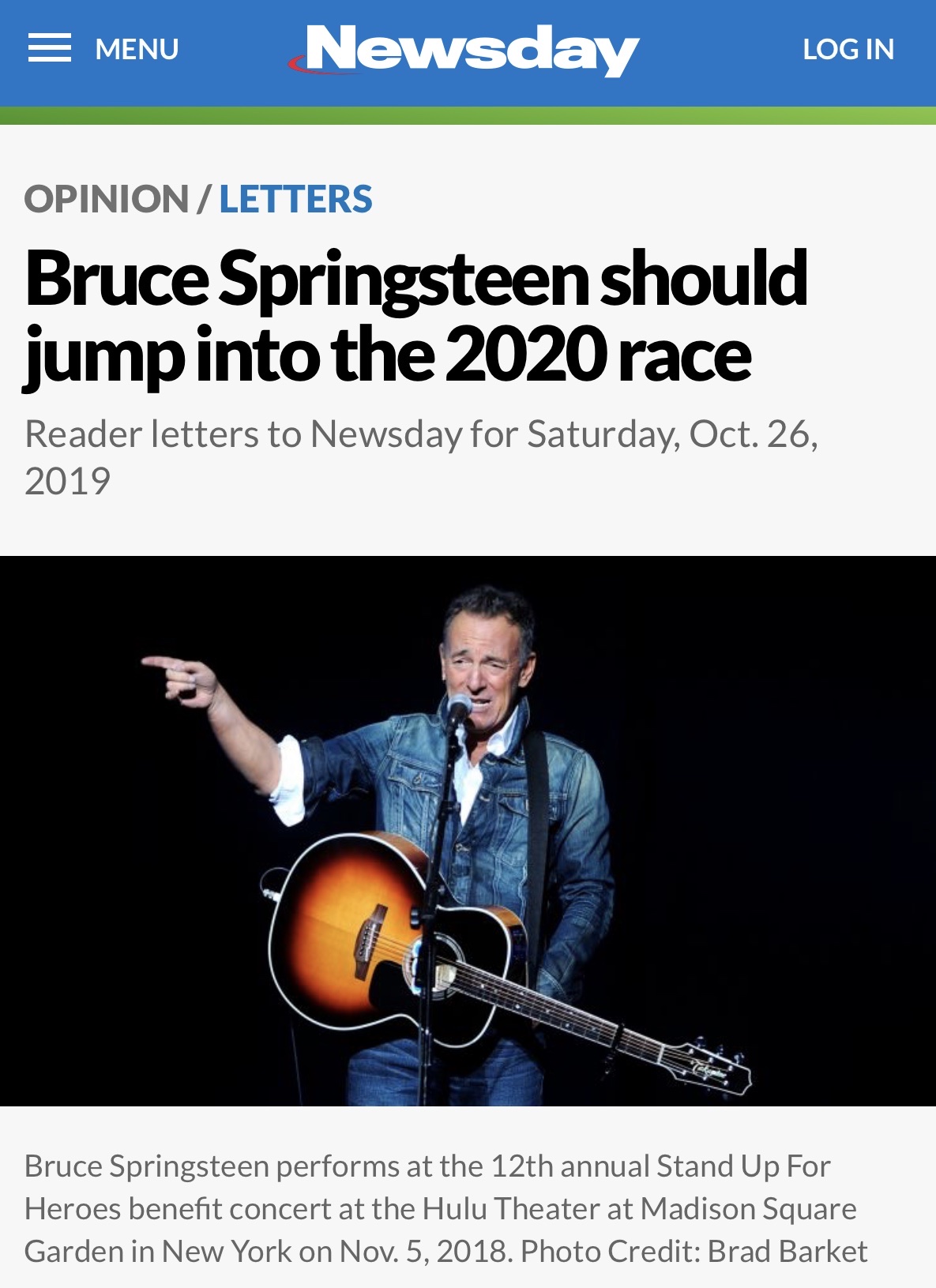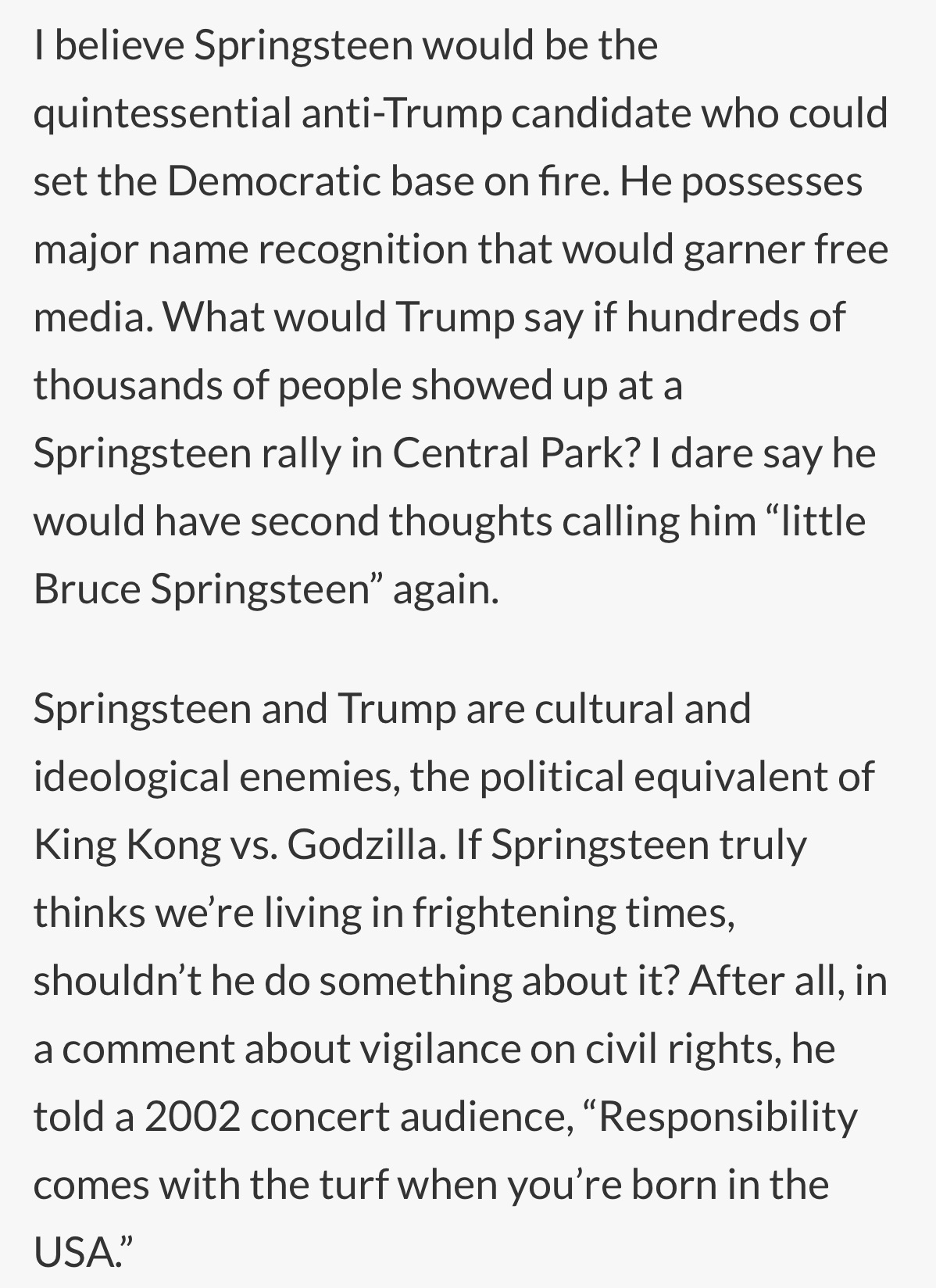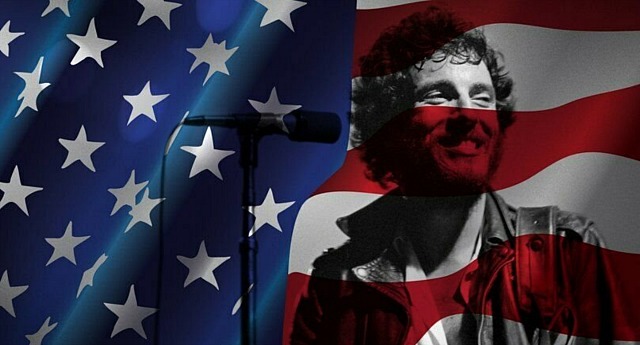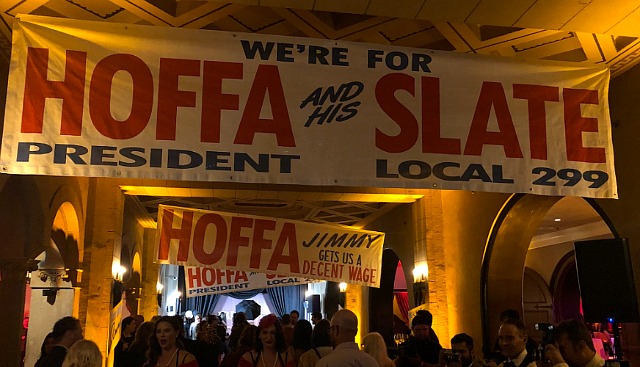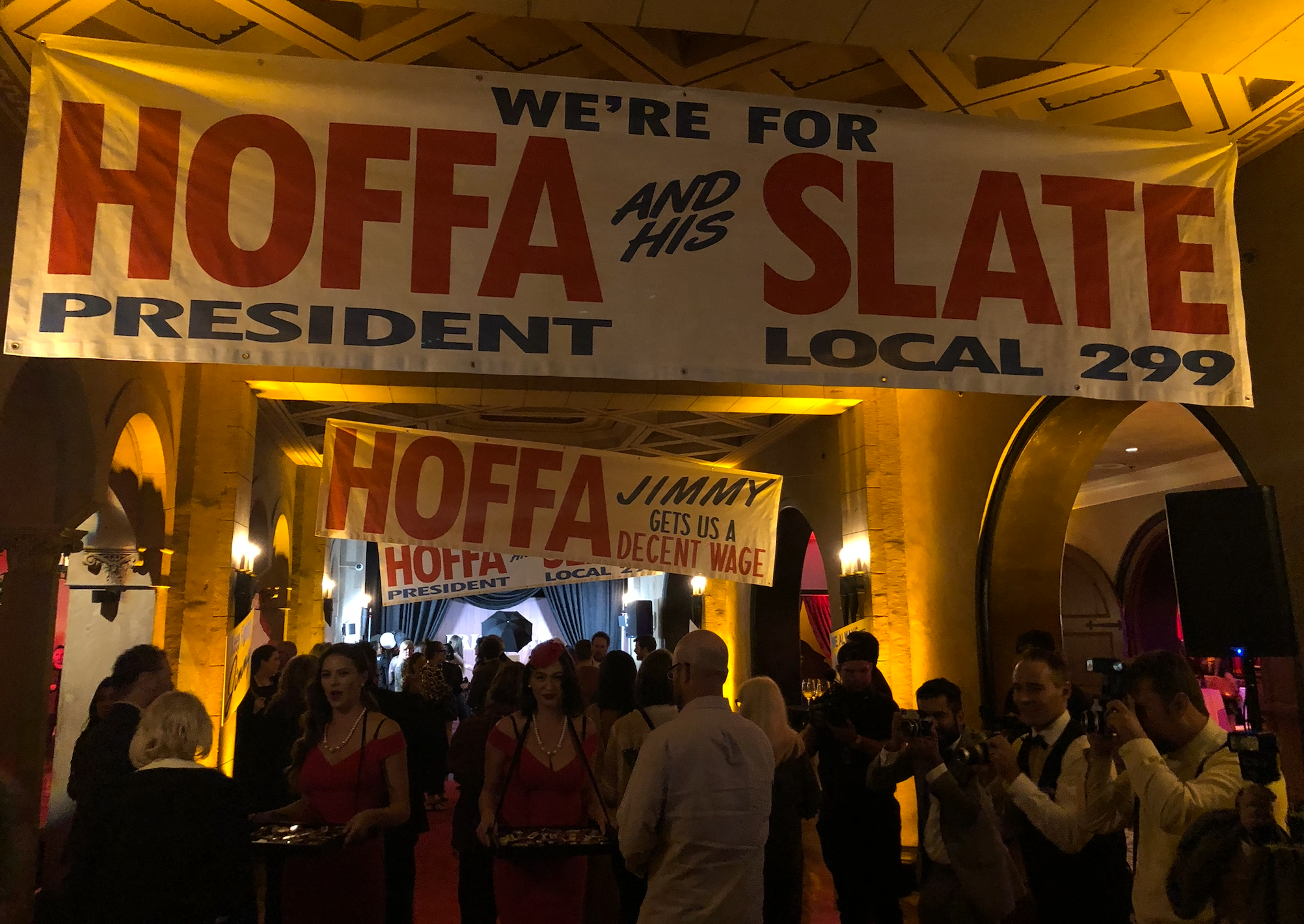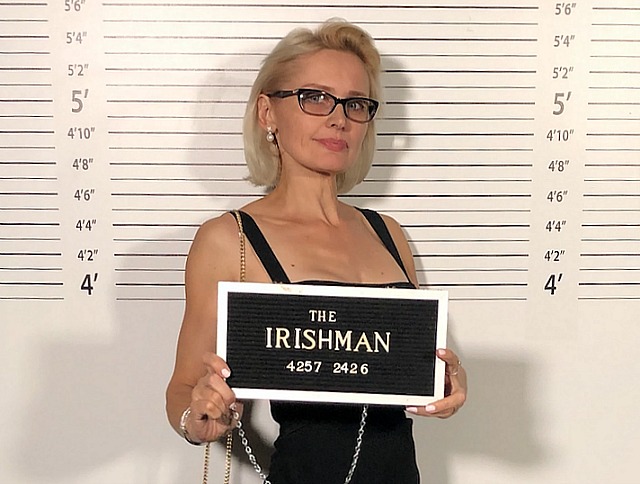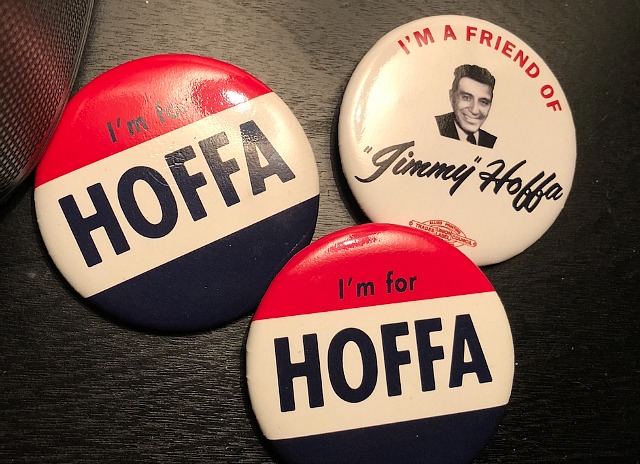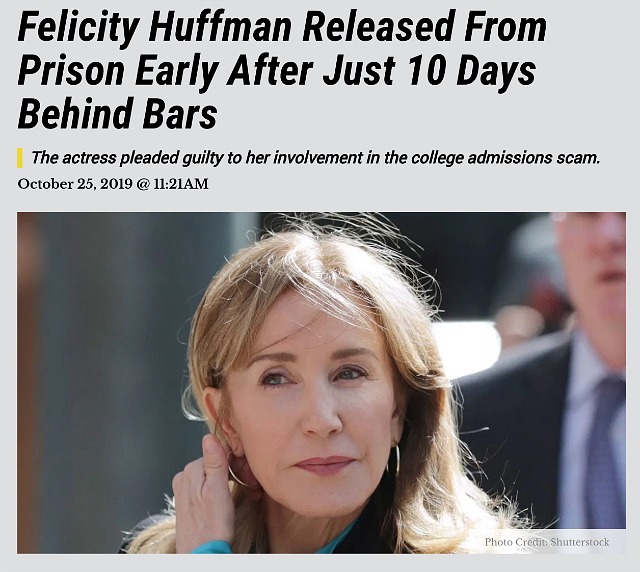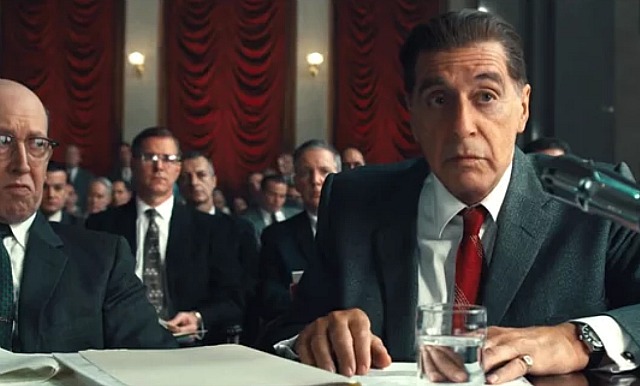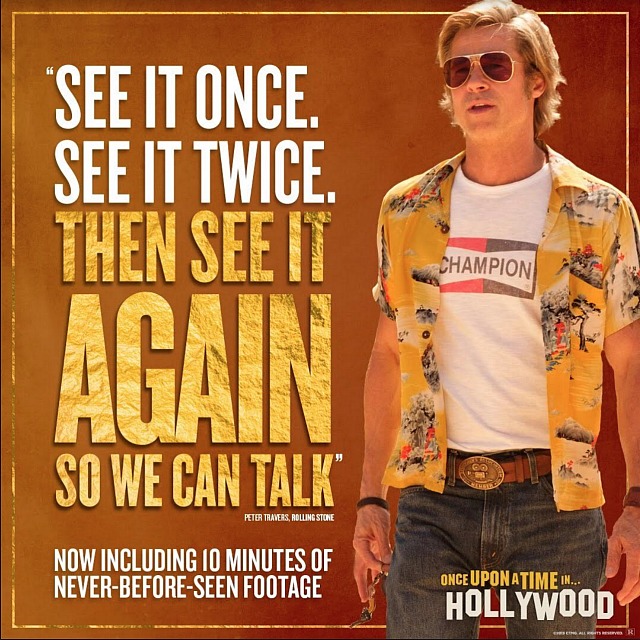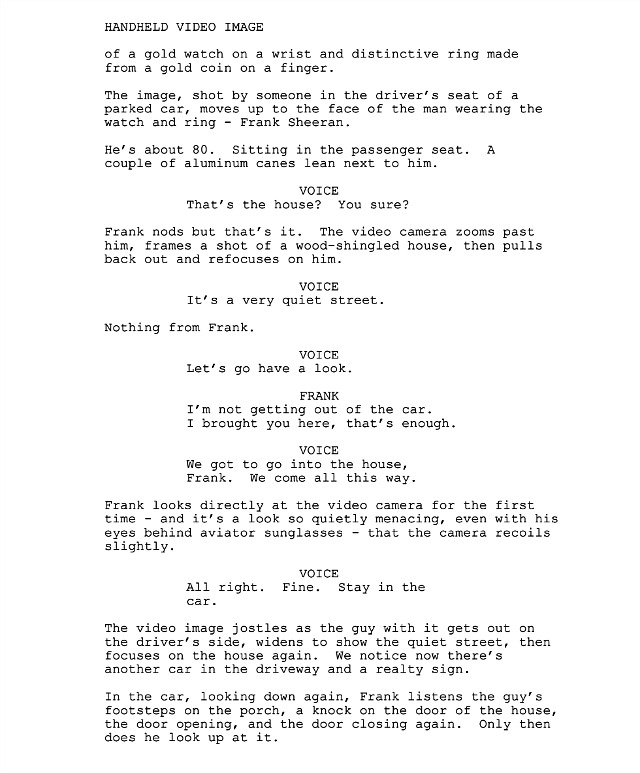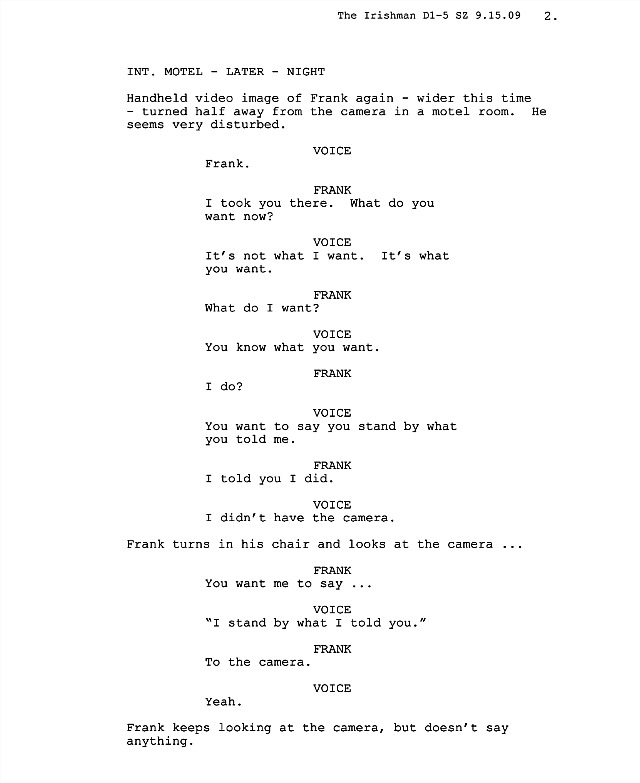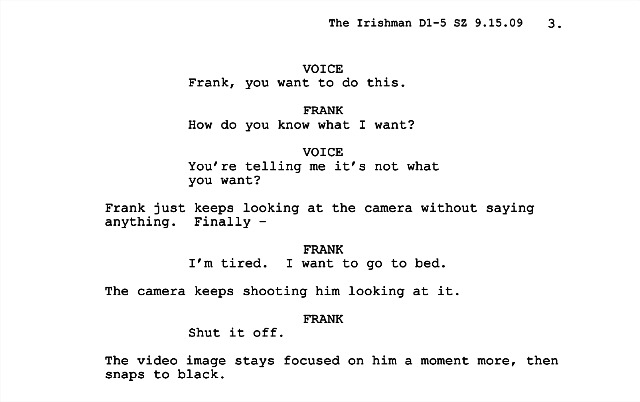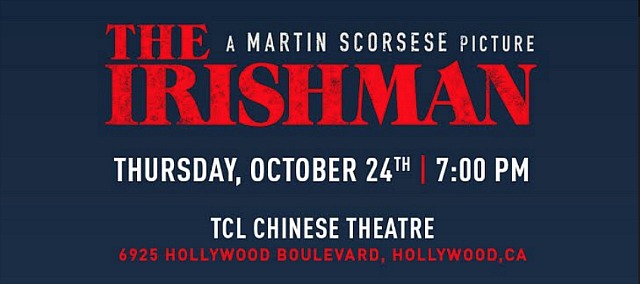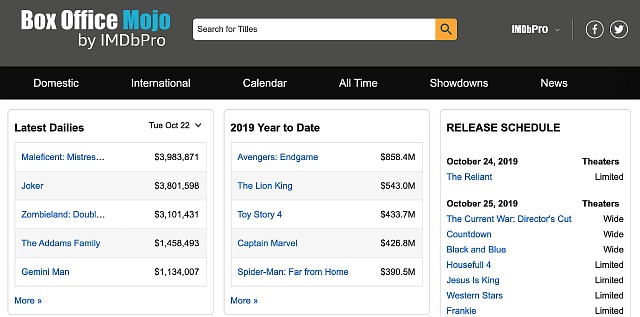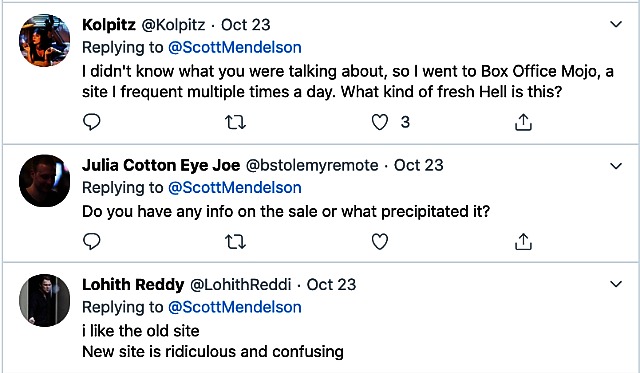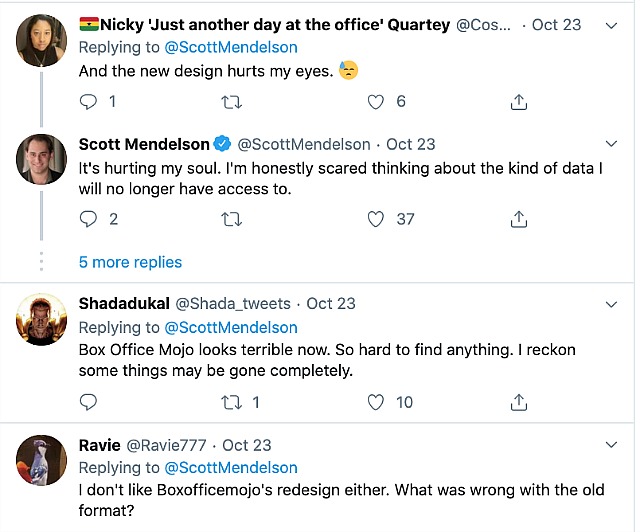Instant victory, hands down, don’t even debate it.
Bruce provides the humanity, name value and a general proletariat compassion and liberal inclination approach. Pete delivers the smart, sleeves-rolled-up implementation of non-woke, non-crazy, forward-looking Millennial practicality.
And if homophobic African-American voters (of which there are quite a few) want to stay home and not vote, fuck ‘em. Bruce and Pete will win in a walk either way.
Everyone I know is slightly concerned about Warren’s chances against Trump, and a lot of people feel a little funny about the schoolmarm thing. (Don’t even mention the prevailing bumblefuck attitudes about Medicare for all.). And Droolin’ Joe is finished, of course. Pete should top the ticket, of course, but the homophobes are ass-draggers.
